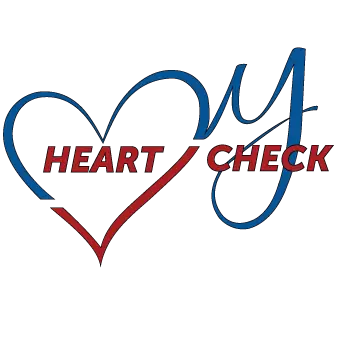We have all heard stories about kids that are seemingly in excellent health, collapsing suddenly, only to later learn it was caused by an unknown heart condition. What many parents don’t know is that most heart defects can be identified before something happens and most are treatable…..IF they get the proper tests.
- EKG’s, are a valuable test when performed on adults, however, are only useful for diagnosing electrical heart abnormalities in youth.
- A normal EKG does not exclude you from having a serious heart condition.
- 1 out of 10 EKG screenings will miss important conditions like hypertrophic cardiomyopathy. Hypertrophic Cardiomyopathy Association
- Those that rely on EKG’s as the primary source of screening youth are typically looking for as few as 3 obvious conditions associated with sudden death, HCM, WPW, and Long-QT.
- In terms of HCM, the single most common cause of athletic field deaths, there is particular concern about relying on a single screening ECG obtained at a single point in time to exclude this disease. Circulation. 2014;130:1303-1334
- EKG’s will only assist in picking up 57% of the issues that cause sudden death and echo is needed to confirm 45% of those. Circulation. 2007;115:1643-1655
- There are at least 18 distinct types of congenital heart defects, with as many as 40 anatomic variations. American Heart Association
- Fifteen percent (15%) of Congenital heart defects are considered to be a direct cause of genetics. Centers for Disease Control
- The false positive/negative rate is between 6 to 30% depending on the expertise of the physician assisting with interpretation. AMSSM Position Statement on Cardiovascular Preparticipation Screening in Athletes: Current Evidence, Knowledge Gaps, Recommendations, and Future Directions. 09.2016
- The second leading cause of sudden death (anomalous coronary artery) is not detectable with EKG. Journal of the American College of Cardiology, Volume 35, Issue 6, May 2000, Pages 1493–1501
- EKG’s can miss potentially, dangerous structural heart conditions, like valve abnormalities and septal defects. Circulation. 2014;130:1303-1334
According to the March of Dimes, 40,000 Children are born each year with a heart defect. Of those, an estimated 23% will have sudden cardiac arrest (SCA)
According to Sanjay Sharma B.Sc. (Hons), M.D., F.R.C.P., F.E.S.C., Professor of Clinical Cardiology, St Georges University of London, up to 90% of all non-traumatic sudden deaths in sport are due to disorders of the cardiovascular system. In young athletes (aged < 25 years) deaths are most commonly from hereditary or congenital cardiac abnormalities whereas, in older athletes, the most common cause of deat h is from coronary artery disease.
h is from coronary artery disease.
The most common causes of SCD in young athletes are the cardiomyopathies (heart muscle disorders) which account for almost 40% of all deaths reported in the literature. The main cardiomyopathies implicated in SCD during sport are hypertrophic cardiomyopathy (HCM) & arrhythmogenic right ventricular cardiomyopathy.
Coronary artery anomalies, especially the origin of a coronary artery from the aberrant sinus, are the second most common cause of SCD in athletes. Other causes are premature coronary disease, aortic rupture from Marfan’s syndrome, aortic stenosis, Wolff-Parkinson-White syndrome, and long QT syndrome.
- EKG’s are best at detecting arrhythmias, (electrical heart defects), estimated to be 14% of all SCA events.
- Hypertrophic Cardiomyopathy (HCM), the leading cause of SCA is estimated at 35% of total SCA events can be indicated on EKG but is only diagnosed with an echocardiogram.
40
Most assume when they sign up for a heart screening, the entire heart is being evaluated for underlying and undetected genetic and congenital cardiovascular diseases. There are a number of reasons to justify thorough testing of cardiac abnormalities since there are many types of congenital heart defects.
- An Echocardiogram (heart ultrasound) also uncovers structural abnormalities that most EKG’s can miss.
- According to the Mayo Clinic, the echo is the “Gold Standard” in evaluating the structure of the heart.


